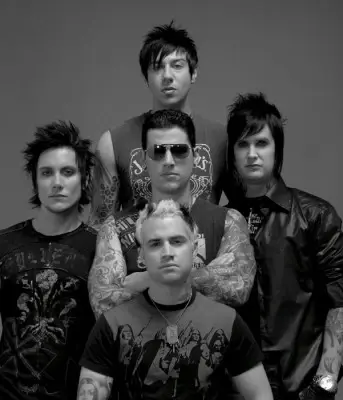USA Metallica's Empty Throne, Linkin Park's Ghost: Deconstructing the Crumbling Pantheon of American Rock & Metal
- Underground Sound Collective

- 2025年9月24日
- 讀畢需時 3 分鐘
In the grand, violent, and often contradictory history of popular music, no empire has been as vast or as culturally dominant as that of American Rock & Metal. This is not a genre; it is a pantheon—a succession of gods and monsters who, for half a century, defined the very concept of rebellion, fame, and sonic power for the entire planet. But as we stand here today, a question hangs heavy in the air, echoing through silent stadiums and fractured streaming algorithms: Where are the new gods? And why does it feel like the old ones are refusing to die?
USA : American metal & Rock
To understand the crisis is to understand the mythology. The blueprint was drawn by British hands, but it was perfected in the sprawling expanse of America. Bands like Aerosmith took the swagger and blues-based heft of their forebears and injected it with a uniquely American, street-smart grit. They weren't just musicians; they were larger-than-life avatars of excess and survival, crafting the very image of the "American Rock Star."
Then came the coup. In the 1980s, a new breed of titans emerged from the underground, finding the old gods decadent and slow. This was the era of Thrash, and at its forefront was Metallica. More than any band before or since, Metallica did not just join the pantheon; they stormed its gates and built their own, higher throne. They rewrote the rules of speed, aggression, and, crucially, business. Flanked by the uncompromising fury of Slayer and the technical venom of Megadeth, they proved that a metal band could achieve absolute global domination on its own terms.
The 90s brought the great deconstruction. From the rain-swept Pacific Northwest, Nirvana emerged not as new gods, but as reluctant anti-gods. Kurt Cobain, with a voice that was pure, scraped-raw emotion, actively rejected the mythology Metallica had perfected. Grunge was an ideological reset, a movement that, along with the complex introspection of Soundgarden and the stadium-sized sincerity of Pearl Jam, momentarily tore down the pantheon and replaced it with a raw, flawed, and beautiful humanity.
But the machine of American rock needed its gods. The last great wave of deification came at the turn of the millennium. Nu-metal, with its architects in the visceral unease of Korn and the chaotic genius of System of a Down, and the political fire of Rage Against the Machine, set the stage for a perfect synthesis. That synthesis was Linkin Park. Here was a band that understood the new millennium's soul. They seamlessly wove the aggression of metal, the cadence of hip-hop, and the gloss of electronic music around the twin-engine core of Chester Bennington's angelic scream and Mike Shinoda's grounded flow. They were the last band to truly conquer everyone, leaving behind a ghost of commercial and emotional dominance that still haunts the landscape today.
And now?
The throne, arguably, sits empty. We have titans, yes, but they are torchbearers, not fire-starters. The indomitable Foo Fighters carry the flame of pure, classic rock with unparalleled passion. Avenged Sevenfold masterfully upholds the tradition of grand, theatrical metal. But the cultural gravity has shifted. The fractured nature of modern media makes a monolithic ascent like Metallica's nearly impossible.

The raw, innovative energy hasn't vanished; it has simply migrated. It now thrives in the explosive creativity of female-fronted acts like Spiritbox, where Courtney LaPlante’s vocal dexterity redefines what a "heavy" vocalist can be. The old, male-centric pantheon is crumbling, not because of weakness, but because its very structure is obsolete.




留言